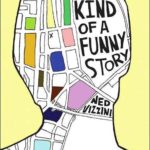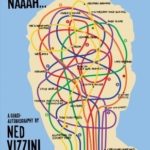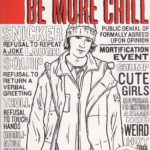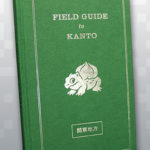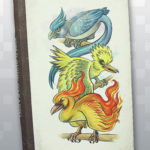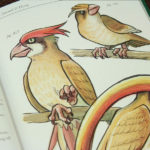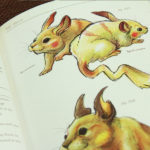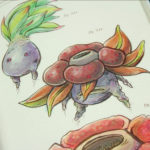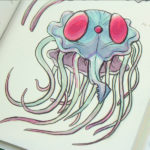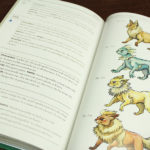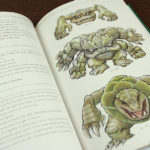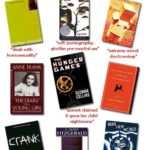I want to respond to the people who say we aren’t really fighting for diversity if we aren’t specifically calling for more “boy books” in YA.
We live in a world where millions of girls are illiterate or forbidden from attending school. Today. Right now. (We also live in a world where hundreds of girls are stolen and sold into sexual slavery and the media doesn’t even report on it. Yep. Right now.) And after years, decades, centuries, millennia of trying to turn those tables, we FINALLY have huge amounts of girls reading in ONE GENRE, and you think that’s a problem?
SERIOUSLY?
No. The problem is that girls are taught to read books about boys AND girls, but boys are taught that girls’ stories aren’t valuable. Today. Right now. Boys continue to be taught that anything with a girl on the cover, anything that talks about girls’ lives, loves, adventures, or interests are silly and less-than and only for other girls.
And that’s a HUGE problem. It’s a huge problem in and of itself, but it also contributes to societies where girls are undervalued, used, tricked, raped, stolen, beaten and killed.
So honestly, if you want to get more boys reading YA, I think that’s awesome. You should absolutely fight for that. (And I hope you’re including queer boys, PoC boys, and boys with disabilities in that fight!) But don’t fight the people working for MORE diversity. That’s absolutely counter-productive.
Fight the notion that girls’ stories are less-than. Fight the misconception that girls’ stories aren’t universal. Fight yourself whenever you tell someone to “man-up,” “don’t cry like a girl,” “grow some balls,” and “stop being a pussy.”
Because that’s the problem.
And if you genuinely want to work together to make YA (and all literature) all-inclusive, we would love to have you.
Back in like fourth grade there was this thing at my school called the 100 book challenge and basically you got prizes for every like book you read and I read so much they called my mom in because they thought I was forging her signature on the logs because I read like seven hours a day and ‘no child would actually read that much’
friend: what are you reading
me: a book
friend: what book
me: this book
Just owning books in and of itself is a telling social marker, and the number of books you own is another one. The bookshelfie and shelfie alike are ways not just to geek out with fellow book fiends, but also to send a signal about your cultural, social, and class position. Owning large quantities of books, being familiar with them, frequently referring to them, working in an industry where books are valued, these are all markers of upper middle class status, reflecting education, purchasing power, and social privilege.
s.e. smith, ‘Is the ‘Shelfie’ Just Intellectual Wankery?,’ xoJane (via se-smith)
Speaking as the grandaughter of immigrants, as the daughter of working-class people (all of whom had piles and piles of books), as somebody who grew up poor, and who has been broke on and off for most of her adult life, who has worked as a secretary and a customer service rep…
…speaking as somebody who drives a car that’s old enough to drive itself…
…speaking as somebody who didn’t have the money to finish college…
…I call bullshit on this.
Books can be bought second-hand, inexpensively. They can be got at thrift stores, for crying out loud, and all you need to enjoy them is a place to sit and enough light to read by. Books are re-usable and storable. You can buy them when you have a little money and keep them for later.
And they give us something to do on the bus.
For those of us who do ride or who have ridden a lot of buses.
They are, in terms of dollars per hour, the cheapest way to educate, solace, or entertain yourself.
I have a lot of books because they are cheap, not because they are expensive.
ETA: I agree with some of the points that the OP is making about the potential for elitism and pretentiousness in framing, but the quoted segment above is elitist nonsense in its own right. Only the middle class is intellectually curious?
(via matociquala)
——
Warning: Scott unexpectedly blows his top a bit.
Oh, my. Where to even begin…
S.E. Smith’s piece is written with something resembling good intentions, but it’s predicated on a recontextualization of the act of book ownership that is ludicrous and insulting. It also features a defining-down of the term “upper middle class” that would be pretty breathtaking even without the rest of the junk surrounding it, but I’m not even going to really dwell on that. Let’s talk a little bit about the economics of books.
The mass-market paperback is an industrial artifact that strikes us as a bit out of place these days, not so much a fish that has smoothly evolved to walk on land but a fish that flops about after its water has receded, fighting to stay alive. The MMPB, which only truly came into being during and after World War II, was mass in a way that most of us barely comprehend in 2013 because its former sales spaces have been killed off in a process lasting more than thirty years. These things used to be bloody everywhere… every grocery store, every pharmacy, every newsstand, every gas station, every department store. The ubiquitous MMPB significantly pre-dates the era of specialized national chain book retailers (like B. Dalton, Waldenbooks, Borders, B&N, themselves now slain or transmuted by shifting commercial landscapes). The main point is, there was a time when exposure to the chance to buy cheap paperbacks was 100% integrated into the experience of going out to buy any of the other necessities of life. The rudimentary book aisles at Wal-Mart and other surviving ‘big box’ stores in 2013 are simply not analogous; not in their depth of selection, not in their price points, not in their physical accessibility.
Return to the phrase “cheap paperbacks.” This too is critical. The MMPB was meant to be inexpensive and disposable. It was meant to attract impulse buyers. It wasn’t meant to be printed on acid-free archival paper and passed down as an heirloom for generations to come. It was banged out cheaply to be sold cheaply… or pulped if it didn’t sell quickly enough.
These books were not status symbols of the “upper middle class.” They were dirt-cheap popular entertainment for all social classes, and all social classes were tempted by racks of the things nearly every time they entered a retail establishment. Remember that… these days the book aisle at Wal-Mart is a place you seek out on your own initiative. Forty years ago, cheap books were something the store would have tried to sell to you at multiple points, in the places you find now DVDs and candy bars and cut-rate video games. Cheap books WERE the DVDs and cut-rate video games of forty years ago.
Now, grandpa isn’t here to lament that time has moved on, kids. Grandpa likes DVDs and video games quite a bit. Grandpa just wants you to remember that books were targeted for sale to everybody, everywhere, and were not doled out of vaults at country clubs.
We also need to talk about those magic places called used book stores, where even high-quality editions were (and are!) available at prices so low they make the fresh MMPB on a supermarket rack seem like it’s printed on sheets of iridium. I grew up in the 1980s on a steady diet of visits (thanks, mom!) to the land of the dime book, the quarter book, and the fifty-cent book. Reference books might run a dollar. Library discard sales were similar treasure hunts; so many potential hours of entertainment and education compressed into such a tiny price tag! I’m not even talking about the other major haunt of my youth, the public library, because I think it’s sufficient for my point to focus solely on book experiences that came directly out of the wallet.
This was not, and is not, a necessarily expensive hobby. This was not, and is not, some sort of elitist fucking class marker of the indolent and narcissistic.
“Owning large quantities of books,” “being familiar with them,” and “frequently referring to them” aren’t symptoms of elitism. They were, and are, and ought to be ASPIRATIONAL SYMPTOMS OF BASELINE LITERACY AND CULTURAL APPRECIATION. Social crusaders in every age of our modern world have understood that functional literacy is part of the very BEDROCK of building and empowering a population to be something other than terrified serfs. Literacy is a common weapon and books are common treasures. Trying to re-frame the act of building a personal library as shameful posturing for the rich and privileged is bullshit. It’s anti-intellectual concern trolling predicated on the flabbergasting notion that the poor don’t have an interest in books or what they represent. It’s no fucking different than the depraved right-wing notion that the poor can’t “really” be poor if they have such luxuries as refrigerators and running tap water available to them.
(via scottlynch78)
HULK METAPHORICALLY SMASHNobody who tells you to be ashamed of your books is your friend or civilization’s friend
Couldn’t bear to lose those tags. The whole thing pisses me off more than I can readily articulate, except to say that, like so much that passes for social justice debate these days, the original post conflating volume of book ownership with class is just an easy way of picking one thing, magnifying it and separating it from everything else about a person in order to judge them, presume about them and generalise about them.
I thought we were all trying to get away from doing that shit?
Plus I know a fuckload of working class autodidacts who will fall over their piles of books laughing at the idea that having and reading them makes them upper middle class.
(via cloudsinvenice)
For many of these women, the reading experience begins from a place of seething rage. Take Sara Marcus’ initial impression of Jack Kerouac: “I remember putting On the Road down the first time a woman was mentioned. I was just like: ‘Fuck. You.’ I was probably 15 or 16. And over the coming years I realized that it was this canonical work, so I tried to return to it, but every time I was just like, ‘Fuck you.’” Tortorici had a similarly visceral reaction to Charles Bukowski: “I will never forget reading Bukowski’s Post Office and feeling so horrible, the way that the narrator describes the thickness of ugly women’s legs. I think it was the first time I felt like a book that I was trying to identify with rejected me. Though I did absorb it, and of course it made me hate my body or whatever.” Emily Witt turned to masculine texts to access a sexual language that was absent from books about women, but found herself turned off by their take: “many of the great classic coming-of-age novels about the female experience don’t openly discuss sex,” she says in No Regrets. “I read the ones by men instead, until I was like, ‘I cannot read another passage about masturbation. I can’t. It was like a pile of Kleenex.”
This isn’t just about the books. When young women read the hyper-masculine literary canon—what Emily Gould calls the “midcentury misogynists,” staffed with the likes of Roth, Mailer, and Miller—their discomfort is punctuated by the knowledge that their male peers are reading these books, identifying with them, and acting out their perspectives and narratives. These writers are celebrated by the society that we live in, even the one who stabbed his wife. In No Regrets, Elif Bautman talks about reading Henry Miller for the first time because she had a “serious crush” on a guy who said his were “the best books ever,” and that guy’s real-life recommendation exacerbated her distaste for the fictional. When she read Miller, “I felt so alienated by the books, and then thinking about this guy, and it was so hot and summertime … I just wanted to kill myself. … He compared women to soup.”
In No Regrets, women writers talk about what it was like to read literature’s “midcentury misogynists.” (via becauseiamawoman)
haha i threw my copy of 1984 into a wall when i started to read the rape fantasy scene by the main character i was so infuriated….and not a SINGLE classmate remembered that scene had even happened even though the narrator TELLS his love interest and she’s excited by the idea he had a fantasy about raping her. 😐
It was lonely on the hill, and cold. And all you could do was keep going. You could scream, cry, and stamp your feet, but apart from making you feel warmer, it wouldn’t do any good. You could say it was unfair, and that was true, but the universe didn’t care because it didn’t know what “fair” meant. That was the big problem about being a witch. It was up to you. It was always up to you.
Terry Pratchett, Wintersmith
i think the witches of discworld might be my favorite modern interpretation of the witch archetype ever
they’re not glamorous or ugly or good or evil or mysterious or sexy or wicked
they’re just people who do the jobs that need doing, when there’s no glory in it, because someone’s got to
they’re the women who are just always there, who clip old men’s toenails and give young girls birth control and play cards with death for a child’s life, not because they’re particularly nice, not because they get credit for it, and not even because they have to—but they chose to be the witch, and so they deal with it.
i love the idea that magic isn’t really all that important at the end of the day. i love that most of magic is just knowing things other people don’t, and using them, and thinking. i love that witches are powerful, incredibly powerful, and their magic isn’t flashy at all. i love that a witch’s value is not measured by what kind of spells she can perform but by how she responds to a cry for help. i love that wizards think witching is a perfectly lovely career, for a woman, of course, when witches hold the universe together just as much as the wizards do, and cure sheep.
witches do what needs to be done, because even if it’s not your fault, it’s your responsibility.

